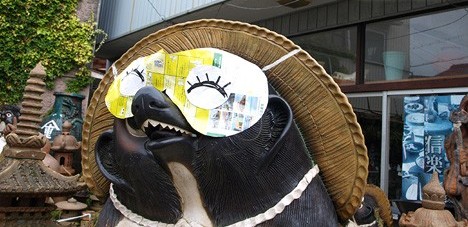
The town of Shigaraki -- the de facto tanuki statue capital of Japan -- has decided to give their favorite creature a well-deserved break. The local tourist association recently designated November 8 as Tanuki Day, a day of rest and relaxation for the tanuki.
Ceramic tanuki statues are a common sight in Japan. As a symbol of good luck and fortune, they are often placed at the entrances to restaurants and bars to beckon customers and bring prosperity. Tanuki Day is meant as an opportunity to pay homage to this honorable work.
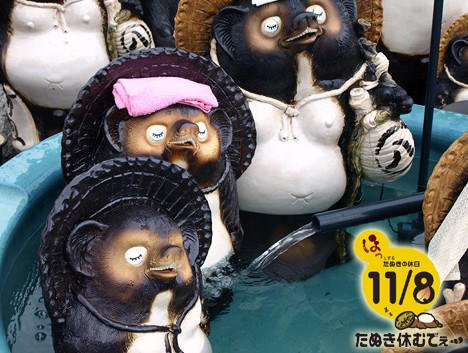
Shigaraki celebrated the new annual holiday for the first time this year. Tanuki statues across town could be seen resting and playing, though most of them chose to sleep the day away. Many wore eye masks, while others had special stickers affixed to their eyes that made them look asleep. Some just lay down on the ground and curled up under blankets.
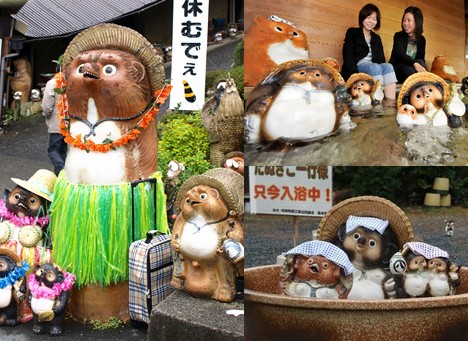
Those that remained awake celebrated by drinking alcohol, soaking in special baths, picnicking under the autumn leaves, and even playing sports. Some tanuki were dressed in beach attire and had suitcases placed next to them.
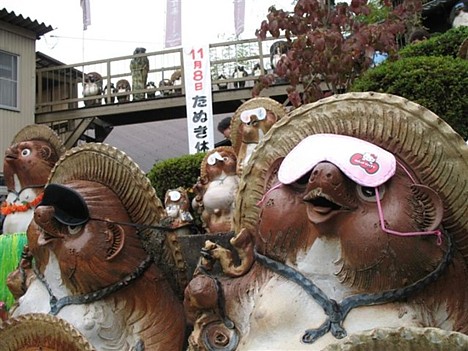
Fumito Ogawa, a local resident who runs a small inn, is credited with the original idea for the holiday. "We wanted to give the tanuki some rest and let them enjoy the other charms that Shigaraki has to offer," he explained.
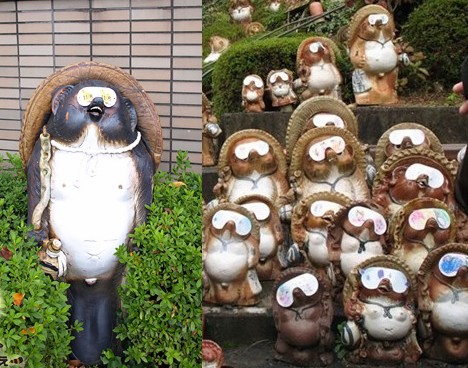
Famous for its long history of pottery-making, the Shigaraki area is the birthplace of Shigaraki ware, a ceramic style that developed in the Nara period (AD 710 to 794). The town began producing ceramic tanuki during the Edo period (AD 1603 to 1868) but did not achieve widespread fame until the Showa Emperor composed a poem about the tanuki statues he saw there on a visit in November 1951.
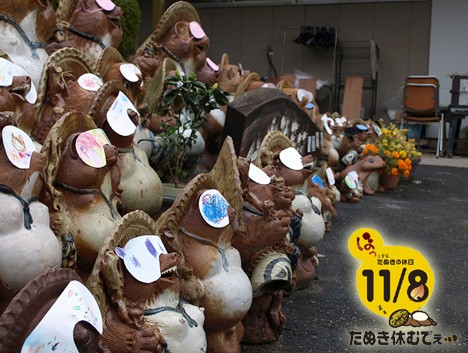
Organizers chose November 8 as the date for the holiday because the emperor made his famous visit in November and because the tanuki has eight special traits that bring good fortune.
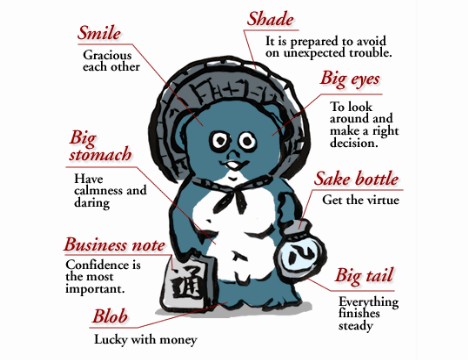
The eight traits are: (1) a bamboo hat that protects against trouble, (2) big eyes to perceive the environment and help make good decisions, (3) a sake bottle that represents virtue, (4) a big tail that provides steadiness and strength until success is achieved, (5) over-sized testicles (referred to as "blob" in the illustration above) that symbolize financial luck, (6) a promissory note that represents trust, (7) a big belly that symbolizes bold decisiveness, and (8) a friendly smile.
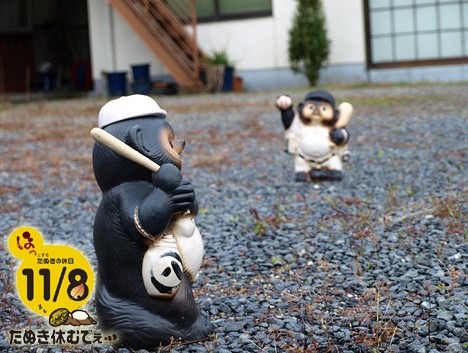
"People have come up with all sorts of ideas to help the tanuki relax," says Ogawa. "To see tanuki in the limelight is a fresh reminder of their greatness."
[Sources: Asahi, Tanuki Day blog]

No Comments
Trackbacks/Pingbacks